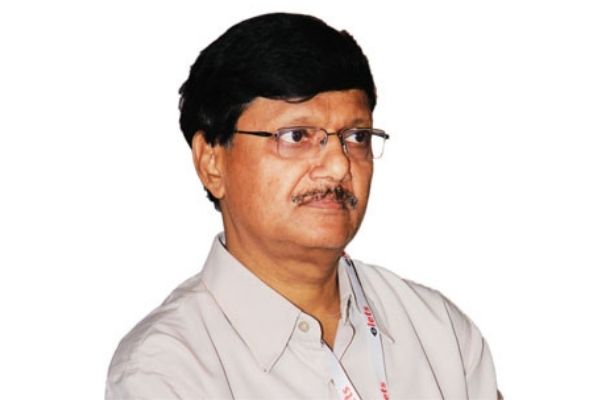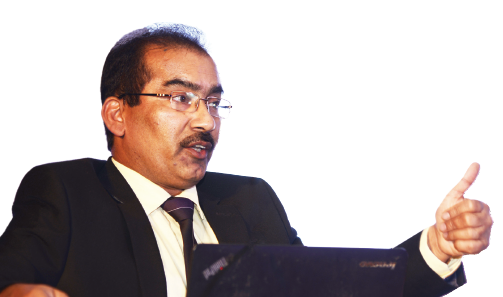Maharashtra has made huge strides in the field of financial inclusion by covering almost entire State under the programme, though there remain some areas of concern, K P Bakshi, Additional Chief Secretary, Department of Home, Government of Maharashtra, tells Kartik Sharma of Elets News Network (ENN). Excerpts from the interview
How do you see the state of financial inclusion in Maharashtra?
The subject of financial inclusion is of utmost importance, because no matter how much of developmental activities are promoted, these activities would not be meaningful unless the benefits reach the last mile. All our activities must ensure that even the last person is enabled to take part in the process of development and benefits from it. In case, there is a section of the society that is left out, they might develop grudges against the government. Therefore, I strongly believe that all the financial instruments must be made available up to the last individual.
As far as the State of Maharashtra is concerned, we feel that it has done reasonably well in terms of financial inclusion. If we find that any particular area does not have proper connectivity—whether of broadband, road or electricity— we consider the area not to be part of the financial inclusion programme. In Maharashtra, work needs to be done for upgrading the status of those who are living in hilly, tribal and Naxal-affected areas.
What do you think are the major challenges with regard to expansion of the financial inclusion programme?
A major issue in Maharashtra is poor connectivity of roads, railways, mobile, broadband and unavailability of electricity in most of the remote areas. If these can be overcome, developmental programmes will surely reach the last person in the society.
What are your thoughts on the Pradhan Mantri Jan-Dhan Yojana (PMJDY)?
In order to ensure that every citizen has a bank account, Hon’ble Prime Minister has launched PMJDY. All government benefits and other financial instruments would reach the beneficiaries through these bank accounts. This process eliminates the role of intermediaries, thereby, narrowing down chances of corruption. All the government programmes like subsidies, scholarships, Direct Benefit Transfers (DBT) can easily reach people with the help of these bank accounts. PMJDY is very relevant, and so far, Maharashtra has done a good job in this context. It can be said because 99.3 percent of the account opening target has been accomplished in this State.
What role do you think Aadhaar can play in this process?
Aadhaar is a method by which identification of individuals can be done. By seeding Aadhaar with the bank data, validation of the accounts can be made. Thus, Aadhaar is the tool through which all fraudulent activities can be curbed. Therefore, by linking Aadhaar to the bank accounts, all financial benefits can be provided in a hassle-free manner, at cheaper costs and in a transparent manner. This will also make the system clean by omitting chances of pilferage, duplication etc.
What is the importance of insurance in the process of financial inclusion?
The insurance sector in the country is growing at a very fast rate, yet we cannot confidently say that every citizen in the country is enjoying the benefits of insurance. Insurance in all forms, such as health insurance, crop insurance, property insurance, car insurance, etc., must be spread across the strata of the society.
What must be the one way to ensure safety and security in banks?
There are various types of security agencies available in the country. They belong to both government as well as private sector. The Central Industrial Security Force (CISF) is an authority, which is under the control of the Central Government. The CISF personnel are deployed in the important undertakings of the Government of India, such as airports, Food Corporation of India (FCI), etc. We also have the Railways security forces to protect its property.
In our State, we have the Maharashtra Security Corporation, which provides trained security forces for manning installations, like banks, ports etc. These forces are very well-trained and provide security to important institutions. It becomes vital to provide safety to the banks, which are located in remote areas. Further, it is essential to offer security cover to the cash, which is being transported from one location to another.
Financial literacy is a big challenge in India, but not as big as it appears to be. Even in rural India, people save money in traditional manner and that saved money is utilised in times of need
How do you envision the growth of the banking sector in the upcoming years?
The banking sector of the country has been doing pretty well. In the recent past, most of the public as well as private sector banks have entered remote areas. This is to be looked upon as a great social change that has occurred. Five years ago, the nationalised banks as well as the private sector banks in Maharashtra were lagging behind the cooperative banks in terms of reaching out to the rural masses and providing agricultural loans. Today, the situation has changed. The private sector banks and the nationalised banks both play a significant role in providing crop loans to the farmers as compared to the cooperative banks. This is a remarkable change and the banks are also doing a wonderful job in providing small loans to the farmers, thus making their lives easier.
Elets The Banking and Finance Post Magazine has carved out a niche for itself in the crowded market with exclusive & unique content. Get in-depth insights on trend-setting innovations & transformation in the BFSI sector. Best offers for Print + Digital issues! Subscribe here➔ www.eletsonline.com/subscription/






















